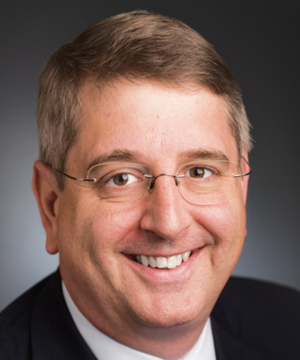Oncology
HR+/HER2- Early Breast Cancer
Treatment Considerations in Older Adults With Early-Stage HR+/HER2- Breast Cancer
Generally, we treat older adults with early-stage HR+/HER2- breast cancer the same way that we treat younger adults. We try to give optimal therapy. Age per se is not the defining factor as much as functional status, treatment tolerability, and a realistic appreciation of likely benefits are. For example, consider a 70-year-old patient with substantial health problems, such as heart disease, cognitive issues, or disabling arthritis, all of which can jeopardize their long-term survival and health. That patient has needs that differ from those of a 70-year-old patient who runs 2 miles every day, plays pickleball 4 times each week, works full-time, and has a very vigorous and healthy lifestyle, with a life expectancy of 15 or 20 years.
<br>
One of the first things that you must do when caring for older adults with early-stage HR+/HER2- breast cancer is to get a ballpark sense of their functional status and overall health. Fortunately, most postmenopausal women with ER+ breast cancer, particularly those aged 70 years and older, have tumors that rarely warrant chemotherapy. In fact, it is relatively unusual to give chemotherapy to women in their 70s. The toxicities and side effects of chemotherapy are much more likely to impair their functionality, which is a devastating consequence. The benefits also tend to be smaller in these patients because their tumors tend to be less sensitive to chemotherapy. There are no rules stating that we should never give chemotherapy to such individuals, but you always want to think about how you are going to affect the patient by giving them chemotherapy.
<br>
Most women with early-stage HR+/HER2- breast cancer should strongly consider antiestrogen treatments. These are highly effective and usually fairly well tolerated. Then we think about adding bisphosphonates and/or CDK4/6 inhibitors for appropriate patients. You have to consider the possible side effects of these medications and make appropriate decisions so that older patients do not get terribly sick from them or compromise their independence.
<br>
We think about radiation therapy a little differently. Findings from a randomized study suggest that older women with early-stage HR+ breast cancer who get endocrine therapy alone vs both endocrine and radiation therapy have no difference in overall survival. For a patient who is in her late 70s or 80s with health concerns, it is quite reasonable to avoid radiation treatment. By contrast, women who are very vigorous and have 10- or 15-plus years of life expectancy may be more interested in getting radiation therapy to prevent recurrence.
<br>
It was not a huge year for older adults at ASCO 2025 specifically, but there was one study by Yazid Belkacemi, MD, PhD, and colleagues looking at accelerated partial vs whole breast irradiation in postmenopausal women with early-stage breast cancer (abstract 514). This study, the SHARE trial, suggested that accelerated partial breast irradiation is associated with a reduced risk of some toxicities, similar to previous studies.
Belkacemi Y, Flandin IG, Le Deley MC, et al. Early results of the French multicenter, randomized SHARE trial comparing whole breast irradiation versus accelerated partial breast irradiation in postmenopausal women with early-stage low risk breast cancer: analysis of toxicity and cosmetic outcomes [abstract 514] [session: Breast cancer—local/regional/adjuvant]. Abstract presented at: 2025 American Society of Clinical Oncology Annual Meeting; May 30-June 3, 2025; Chicago, IL.
<br>
Coles CE, Griffin CL, Kirby AM, et al; IMPORT Trialists. Partial-breast radiotherapy after breast conservation surgery for patients with early breast cancer (UK IMPORT LOW trial): 5-year results from a multicentre, randomised, controlled, phase 3, non-inferiority trial. Lancet. 2017;390(10099):1048-1060. doi:10.1016/S0140-6736(17)31145-5
<br>
Kunkler IH, Williams LJ, Jack WJL, Cameron DA, Dixon JM. Breast-conserving surgery with or without irradiation in early breast cancer. N Engl J Med. 2023;388(7):585-594. doi:10.1056/NEJMoa2207586
<br>
Reid-Agboola C, Klukowska A, Malcolm FL, Harrison C, Parks RM, Cheung KL. Comprehensive geriatric assessment for older women with early-stage (non-metastatic) breast cancer—an updated systematic review of the literature. Curr Oncol. 2023;30(9):8294-8309. doi:10.3390/curroncol30090602
<br>
Schmidt M, Loibl S. Chemotherapy in older patients with early breast cancer. Breast. 2024;78:103821. doi:10.1016/j.breast.2024.103821
<br>
Vicini FA, Cecchini RS, White JR, et al. Long-term primary results of accelerated partial breast irradiation after breast-conserving surgery for early-stage breast cancer: a randomised, phase 3, equivalence trial. Lancet. 2019;394(10215):2155-2164. doi:10.1016/S0140-6736(19)32514-0
<br>
This information is brought to you by Engage Health Media and is not sponsored, endorsed, or accredited by the American Society of Clinical Oncology.








